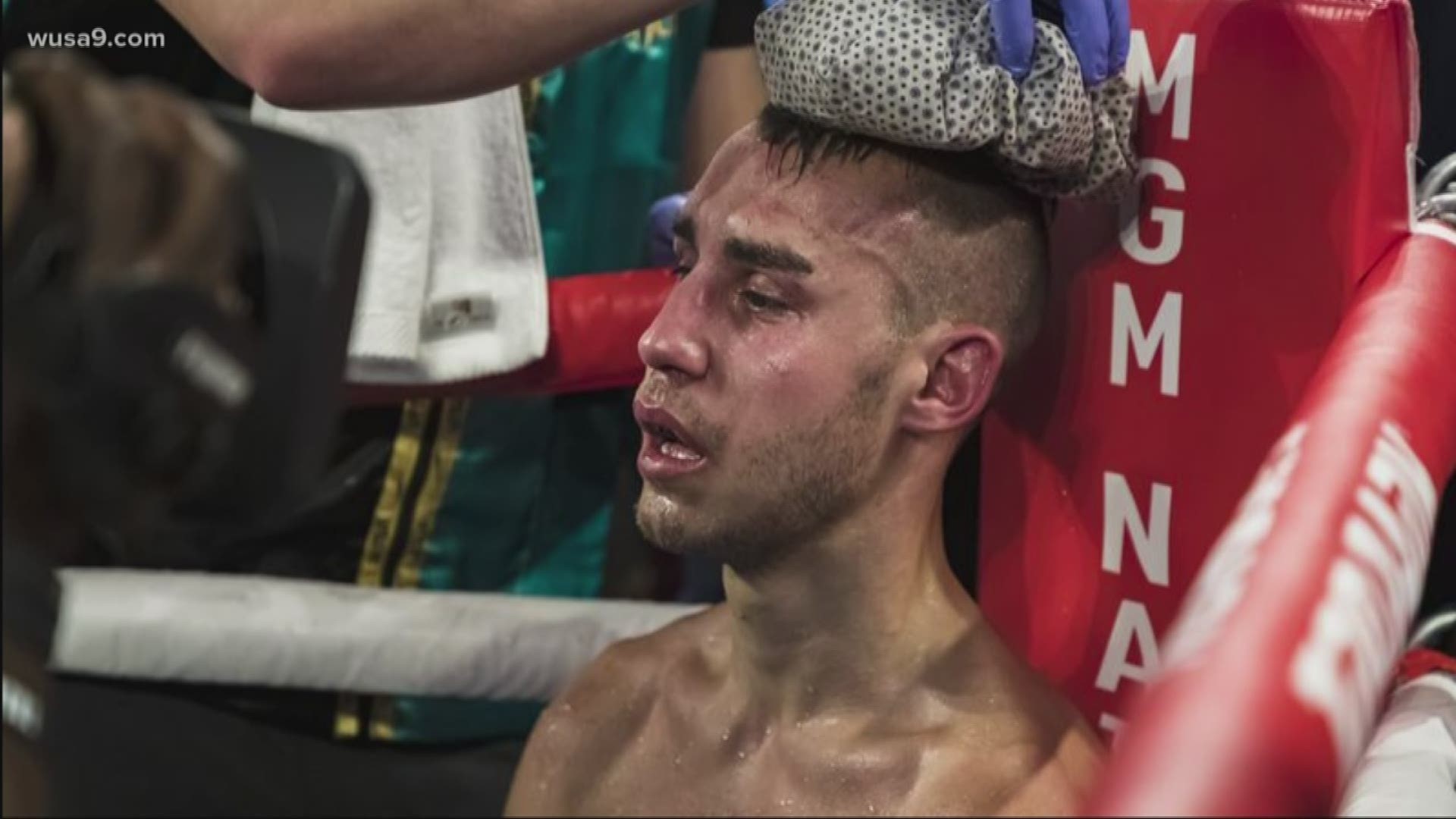WASHINGTON, D.C., USA — A man died at Princes Georges County Hospital Center Tuesday morning, four days after another man beat him so badly he had bleeding on his brain and doctors induced a medical coma. It's unclear what the cause of death on Maxeem Dadashev's death certificate reads. But it's not homicide. And the man who used his fists that caused Dadashev's death? He was neither questioned by police nor arrested for murder or manslaughter.
No, he was consoled because he didn't mean to kill him. Here's hoping he doesn't suffer survivor's guilt for merely doing his job, physically incapacitating another man.
Being a fight fan today -- the day a 28-year-old Russian lost his life after fighting Friday night at MGM National Harbor -- is to understand the true meaning of hypocrisy.
People like me are now part of the problem. Really, how can I get on my high horse about concussions in football while paying a cable company $75 to watch sanctioned violence between people essentially giving each other brain damage?
How can anyone call for inquiries and investigations after they rejoiced in someone getting pummeled on their living-room screen?
Gregory Hines, the late tap dancer/entertainer extraordinaire, was once asked in a PBS interview why such a learned, artistic man frequently showed up ringside at prize fights in Las Vegas.
"I don't what it is, but somewhere in my neural cortex -- somewhere in in the reptilian part of my brain -- I like seeing another man get popped. I can't explain it."
I can't, either, except to say the first real sports gods of my adolescence were boxers. Muhammad Ali. The 1972 and 1976 U.S. Olympic boxing teams. Sugar Ray Leonard. Their speed and style and charisma almost masked the violence. The pageantry and personalities were rich and colorful. That, too, camouflaged the violent knockouts. Or at least made them palatable.
My first foray into big-time sports writing was covering boxing for a now-defunct newspaper in Sacramento some 25 years ago. I still love the fight game -- the characters, the back stories, the soul of the champions and contenders. But I can no longer justify paying for it anymore.
Boxing writers who covered Ali and Joe Frazier's third fight -- "The Thrilla in Manila" -- described it as one of the most pulsating, grand events of their career and life. Two men, their skills and reflexes fading, trading bombs in the middle of the ring as if they were two children in a pillow fight, waiting for one of them to go groggy before he dropped.
Nobility and human majesty were used by several writers to describe that fight at the time. Nine years later, Dave Anderson, the late New York Times sports columnist whom I was honored to work with for 10 years, wrote the truth:
"More than half an hour [after the fight], Muhammad Ali finally arrived, worn and weary. For once, he had little to say, even as the victor in what will be remembered as perhaps his noblest hour as a gladiator. 'What you saw,' the champ said slowly, 'was next to death.' During his 14 fights in the six years that followed, Muhammad Ali was never the same after that Thrilla in Manila, as he had titled it. And in retrospect now, with Ali on medication for what one of his doctors calls 'Parkinson's syndrome, very possibly' as a result of blows to the head, the question is obvious - for Ali, what was the eventual price of the Thrilla in Manila?"
The price, we now know, were the gradual, painful-to-watch loss of his motor skills.
Really, how can I simultaneously mourn Dadashev and be upset at myself for not renting the Manny Pacquiao-Keith Thurman fight a night later?
Did you see the ESPN video of Buddy McGirt, Dadashev's trainer, telling his fighter he was going to stop it, and how the fighter tells him no, I want to continue. McGirt did stop it. Absolutely devastating to watch in hindsight.
Dave Anderson's last line of his column in 1984 about Ali is almost haunting:
"Boxing needs to be governed better, much better. But boxing is like sin. It's too popular to be abolished."
My 8-year-old asked a question anyone might ask when I told him a boxer died after he was knocked out in a fight. "Is the man he fought going to get arrested now?"
No, I told him. He didn't mean for him to die. He was just doing his job. My son didn't understand. Surely, neither will Dadashev's 2-year-old son, who will never know his father.
But we understand. And that's the really sad part, the part that makes the dilemma and hypocrisy of still watching and enjoying this brutal sport so hard.

